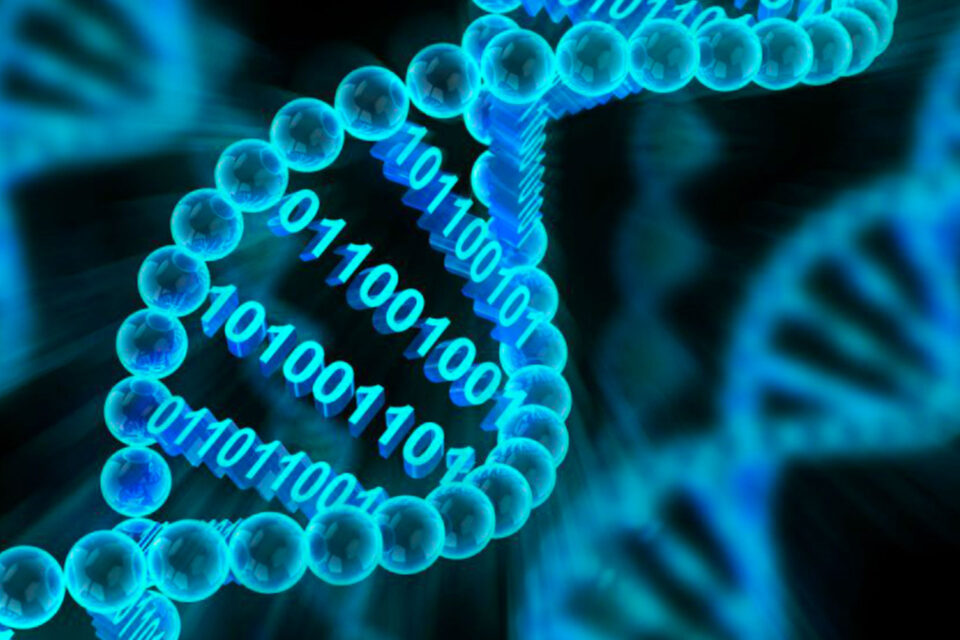

As a postdoctoral research scientist at the Data Science Institute (DSI) at Columbia University, Alexander R. Root leverages his background in biomedical engineering and systems biology to develop computational methods and models that explore interactions between components of a biological system.
Root investigates how specific system elements—from small scale cells and molecules to large scale populations—interact to perform necessary functions, and how they adapt and respond to change. He models the interactions between system components, and the responses to changes that affect their normal functioning, be it cancer cell treatments or environmental changes in the ocean. The underlying theme in his work, Root explains, is to maximize the health of systems in the human body or the natural world. His cross-disciplinary and comparative approach enables him to leverage insights across disparate fields and scales.
This approach seamlessly transitions between disciplines, leveraging data science to examine cooperation and reaction to disruption among various biological elements, networks, and systems—from cells in the human body, to microorganisms in the ocean, to data in information technology.
“One of the things that made me excited about coming to DSI was the cross pollination of ideas that happens here,” Root said. “There is a similarity in our methods that enables us to understand one another across disciplines, so that we can think about different types of problems through their similarities, carrying insights from one field to another.”
In a 2020 paper published by Theory in Biosciences, Root drew parallels between biological systems and information security systems, arguing that an information security view of cells can provide useful insights into how biological systems identify and respond to threats. He illustrated how information security elements such as signaling, encryption, regulation, and defense can be theorized to be operating within biochemical networks, and how this understanding can offer insights into defenses against pathogens and pathologies.
Today, Root, who received his doctorate in systems biology from Cornell University, applies methods and approaches developed to study the response and adaptation of cancer cells to drug treatment towards a better understanding of how ocean bacteria are responding to environmental stresses such as warming and acidification.
This work, described in a 2018 paper published by Systems Biology and Applications, tested the responses of prostate cancer cells to therapy and treatment, with a focus on aspects related to the emergence of drug resistance. In order to better understand cell response, and the development of resistance mechanisms, Root and his colleagues used a systems pharmacology approach and combined targeted systematic drug perturbation with the use of mass spectrometry to closely observe the responses of molecular networks over days to weeks. Their detailed examination of cancer cell response and adaptation helped reveal early indicators of drug efficacy, as well as early markers of resistance pathways, which can then potentially be further targeted with combination therapy.
At Columbia, Root works with biological oceanographer Sonya Dyhrman, an associate professor of earth and environmental sciences at the Lamont-Doherty Earth Observatory, and Shuang Wang, professor of biostatistics at the Mailman School of Public Health of Columbia University, on projects that use similar data science and systems biology approaches in order to better understand and address issues related to ocean health. Their work investigates the genetics and biogeography of essential marine organisms, using data science and computational modeling to illuminate the interdependent relationship between genetic make-up and environment.
At the Dyhrman Microbial Oceanography Group, Root and his fellow researchers use computational modeling to better understand how an important group of ocean bacteria respond to environmental change. Their focus is nitrogen-fixing microorganisms because, according to Root, they are a keystone species, whose work in converting diatomic nitrogen in the atmosphere into biologically usable forms is important to marine food web.
Root is developing a network model for nitrogen-fixing microorganisms in order to predict their abundance and levels of nitrogen fixation. Understanding how these microorganisms will adapt and evolve to changing climatic patterns in ocean acidification, warming, and stratification is important for predicting changes in marine food webs and biogeochemical cycles.
— Karina Alexanyan, Ph.D.